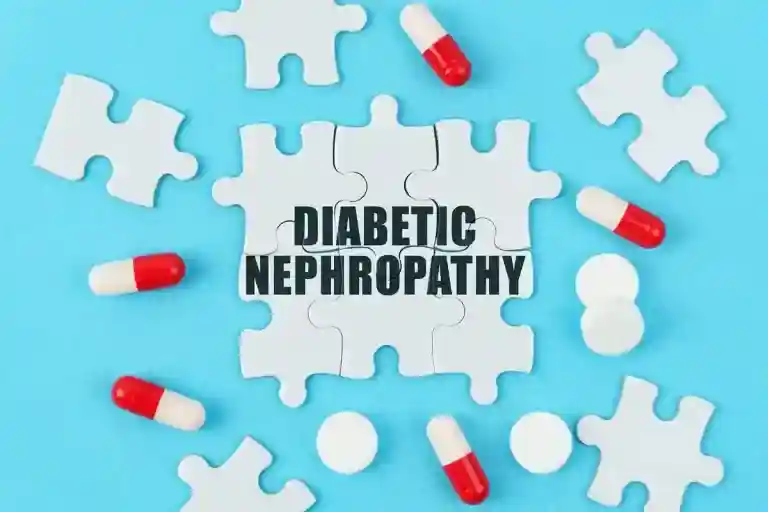Bariatric or weight loss surgery comprises of procedures like gastric bypass, gastric band etc. that are performed on people suffering with obesity. The aim of the surgery for the patient is to achieve significant weight loss by opting for the most suitable procedure.
What does bariatric surgery involve?
Bariatric surgical procedures aims at weight loss by restricting the holding capacity of the stomach which causes malabsorption of nutrients or the procedure can be a combination of both gastric restriction and malabsorption. Bariatric procedures also often cause hormonal changes which suppress the feeling of hunger bringing about a feeling of fullness.
Some techniques of Bariatric surgery performed at Wockhardt Hospital which is a premium institute for bariatric surgery as per international standards.
Most weight loss surgeries today are performed using minimally invasive techniques laparoscopic surgery.
The various procedures lead to weight loss is:
1) Reduction in the size of the stomach through placement of
Gastric Bypass this is often called the ‘gold standard’ of weight loss surgery.
Some Advantages and Disadvantages:
- Brings about a long-term weight loss (60 to 80 percent excess weight loss)
- Restricts the amount of food that can be consumed
- May lead to conditions that increase energy consumption
- Produces certain changes in gut hormones that reduce appetite and enhance satiety
- >50% excess weight loss
- potentially could result in greater complication rates
- Can lead to long-term vitamin/mineral deficiencies particularly deficits in vitamin B12, iron, calcium, and folate
- Generally has a longer hospital stay
2) Sleeve Gastrectomy or Biliopancreatic Diversion with Duodenal Switch
The Laparoscopic Sleeve Gastrectomy – often called the sleeve gastrectomy – is performed by removing approximately 80 percent of the stomach. The remaining stomach is a tubular pouch that resembles a banana.
Some Advantages and Disadvantages…
- Restricts the amount of food the stomach can hold
- Induces rapid and significant weight loss that comparative studies find similar to that of the Roux-en-Y gastric bypass.
- Requires no foreign objects to be inserted in the process, and no bypass or re-routing of the food stream (RYGB)
- Involves a relatively short hospital stay of approximately 2 days
- Causes favourable changes in gut hormones that suppress hunger, reduce appetite and improve satiety
- Is a non-reversible procedure
- Has the potential for long-term vitamin deficiencies
- Has a higher early complication rate than the AGB
3) Adjustable Gastric Band Surgery
The Adjustable Gastric Band – often called the band – involves an inflatable band that is placed around the upper portion of the stomach, creating a small stomach pouch above the band, and the rest of the stomach below the band. The clinical impact of the band seems to be that it reduces hunger, which helps the patients to decrease the amount of calories that are consumed.
Advantages:
- Reduces the amount of food the stomach can hold
- Induces excess weight loss of approximately 40 – 50 percent
- Involves no cutting of the stomach or rerouting of the intestines
- Requires a shorter hospital stay, usually less than 24 hours, with some centers discharging the patient the same day as surgery
- Is reversible and adjustable
- Has the lowest rate of early postoperative complications and mortality among the approved bariatric procedures
- Has the lowest risk for vitamin/mineral deficiencies
Disadvantages:
- Slower and less early weight loss than other surgical procedures
- Greater percentage of patients failing to lose at least 50 percent of excess body weight compared to the other surgeries commonly performed
- Requires a foreign device to remain in the body
- Can result in possible band slippage or band erosion into the stomach in a small percentage of patients
- Can have mechanical problems with the band, tube or port in a small percentage of patients
- Can result in dilation of the oesophagus if the patient overeats
- Requires strict adherence to the postoperative diet and to postoperative follow-up visits
- Highest rate of re-operation
Bariatric Surgery at Wockhardt Hospitals is recognised as a centre of excellence Metabolic and Bariatric Surgery. Our renowned doctor, Dr Raman Goel and his specialised and dedicated team provide the clinical expertise for managing and treating obesity through this super speciality surgery. The team is guided and has immense experience with all surgical protocols for all procedures and Pre & Post-surgical Management.
Our centre of Excellence at Wockhardt Hospital is supported by internationally trained nutritionist, counsellor & bariatric physician. The department conducts Weight loss surgery support groups’ benefits and motivates post-surgery patients. These support groups helps patients achieve better weight loss and deal with the issues related to following bariatric diet, recipes and exercise by sharing experiences and communicating with peers. Our world class infrastructure and cutting edge technology complement our teams’ efforts bringing about overall success of the patient at Wockhardt Hospital.
For Further queries and information on Bariatric Surgery please visit our centres at Wockhardt Hospital.
Wockhardt Hospitals, a chain of tertiary care super-specialty hospitals has more than 25 years of experience in the creation and management of Super Specialty Hospitals in India.
Wockhardt Hospitals is regarded as a centre of excellence the healthcare domain, having facilities in North Mumbai (Mira road), South Mumbai (Mumbai Central), Navi Mumbai (Vashi), Nagpur, Nasik, Rajkot and Surat. Wockhardt Hospitals has state-of-the-art infrastructure and eminent doctors. Our prime objective is patient safety and quality of care at all levels. The guiding philosophy is to serve and enrich the Quality of Life of patients and to make life win.


















